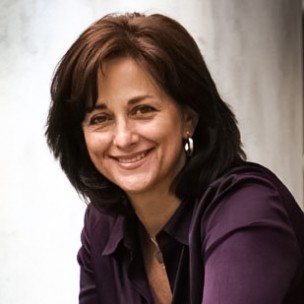
This past weekend at the Society for Neuroscience’s (SfN) annual meeting at McCormick Place in Chicago, Professor of Biology and Neuroscience & Behavior Janice Naegele received the Louise Hansen Marshall Special Recognition Award. Recipients were recognized for promoting the professional development of women in neuroscience through teaching, organizational leadership, and public advocacy.
“SfN’s 45th annual meeting is the premier venue for neuroscientists to present emerging science, learn from experts, forge collaborations with peers, explore new tools and technologies, and advance careers,” the Society for Neuroscience website reads.
Toward the end of the five-day conference, the Society held a Celebration of Women in Neuroscience Luncheon, which featured a keynote speech by Maria Neimark Geffen, Ph.D., Assistant Professor of Otorhinolaryngology at the University of Pennsylvania Perelman School of Medicine.
“To be honest I had never heard of the Louise Hansen Marshall Special Recognition Award,” Naegele said. “Although I guess it’s been given out for five or six years now. I’ve been to the Women in Neuroscience lunch before and they’re very hard to get into… and it’s open to men and women. Typically about 300 people attend so it’s a rather large affair.”
Naegele further spoke to how she received this award.
“The past president for the Society of Neuroscience, Carol Mason, contacted me and she said ‘I would like to nominate you for this award. I know you do a lot with students and faculty development,’” Naegele said. “She has known about my work for many years.”
She added that once she gave Mason her CV, she did not hear anything for quite some time.
“Then I got contacted by the chair of the selection committee that I had gotten the award,” Naegele said. “So I was just surprised and honored to get this. I’m just really almost speechless. Carol Mason and I had talked about women in science and the hurdles of advancement in the STEM fields for women and minorities, and she knew that I was very interested in this.”
Naegele explained that she had recently given a talk in Italy about the difficulties of being a woman in science.
“[The questions I had to answer were,] how did mentoring play a role?” she said. “What were the big decisions? What were the big hurdles and how did you get around them? So I talked very personally about my scientific career and the fabulous mentors I’ve had along the way, but also some of the hurdles like raising a family [and the fact that] my husband is also a neuroscientist.”
Professor of Molecular Biology and Biochemistery Ishita Mukerji has worked with Naegele for the past two years in promoting discussion surrounding the hurdles faced for certain individuals in the STEM fields.
“[She] and I brought in a number of prominent people to talk about the hurdles that minorities face, in particular in computational fields,” Naegele said. “Whenever possible, we team up with the Women in Science group here at Wesleyan. It turned out to be very successful when these women would talk about science and their hurdles.”
Mason will visit the University in April 2016 to meet with the Women in Science group, and she plans to give a seminar and also discuss careers in the STEM fields while she is on campus.
“We are working on grants… to try and get more funding in to help with awareness and we also work with Antonio Farias… to talk about implicit bias [in the STEM fields],” Naegele said. “He’s been working with departments who are doing job searches to increase awareness of implicit bias. I think that throughout these efforts—speakers, workshops, discussions about hurdles women and minorities face in advancing—everyone is [more aware] that it’s not the same for men and women and the hurdles they face.”
Naegele emphasized how crucial the mentor-mentee relationship is to her.
“All my former mentors are men,” she said. “The hurdles we face are not the same. It’s important to talk about this and be aware of this. We aren’t trained to be good mentors, we’re trained to be good academics…. If I think about [past mentors, I recognize that] it is also the mentee’s role. Not everyone takes advice very well. There’s a skill set for being a good mentee and a good mentor. We’re really interested in this at Wesleyan.”
Jake Radell, a current Biology graduate student in Naegele’s lab spoke to his experiences in her lab.
“Working for Jan for the last few years has been an amazing experience,” Radell said. “She has been a great inspiration to me and to many others working in her lab. My scientific career wouldn’t be the same without her.”
As for future plans, Naegele intends to focus on the research in her lab studying mechanisms of epilepsy, and specifically the role of inhibitory brain cells controlling epilepsy. In addition, she has discussed potential plans to enhance co-curricular experience for undergraduate students with President Roth and Provost and Vice President for Academic Affairs Joyce Jacobsen. She will also be teaching a spring intensive laboratory course in neuroscience.


Leave a Reply